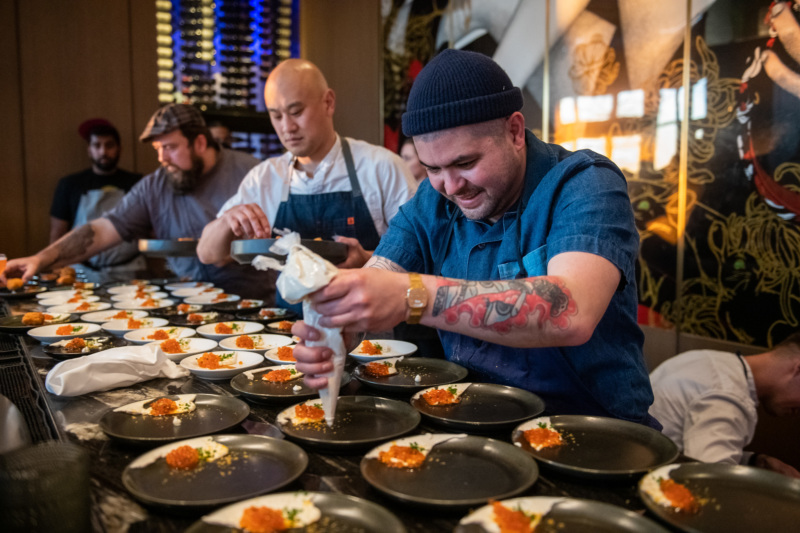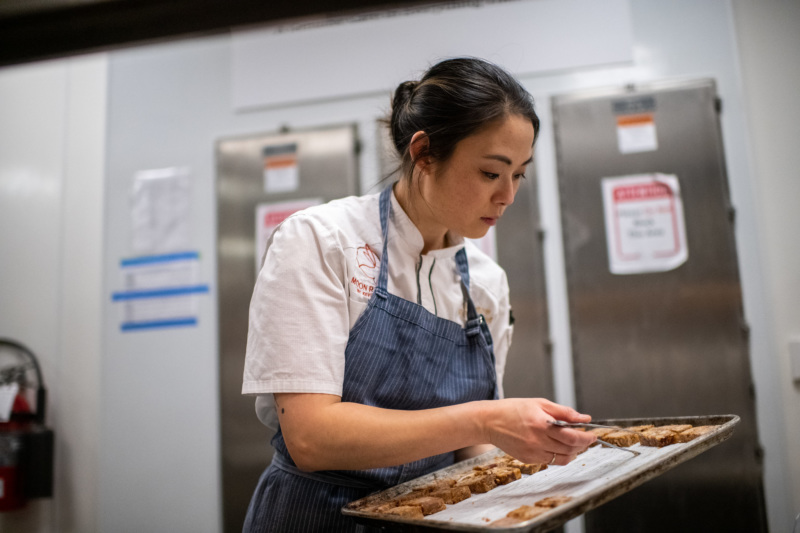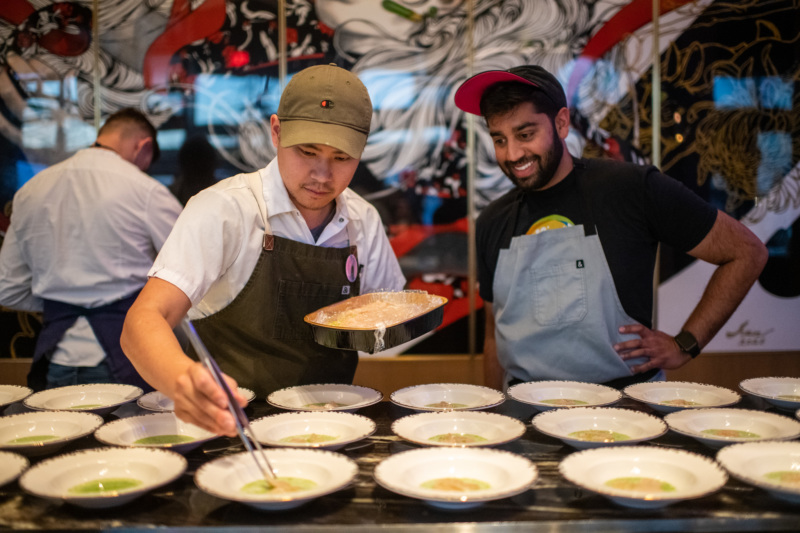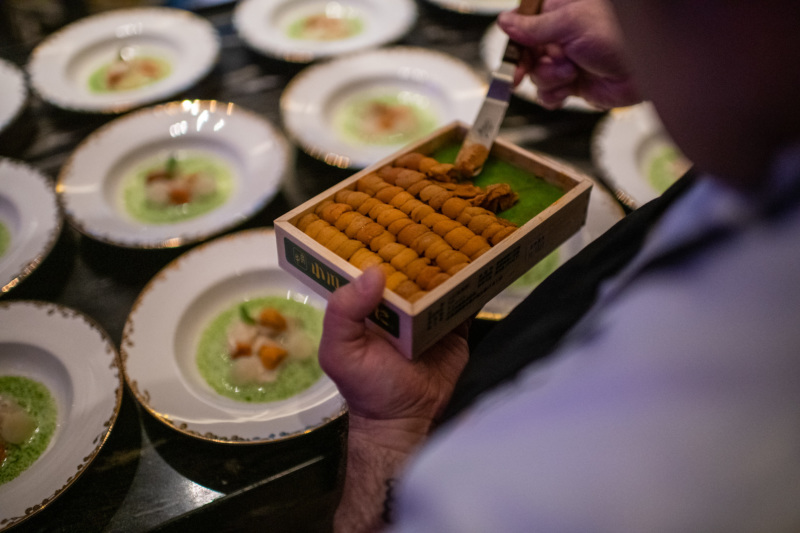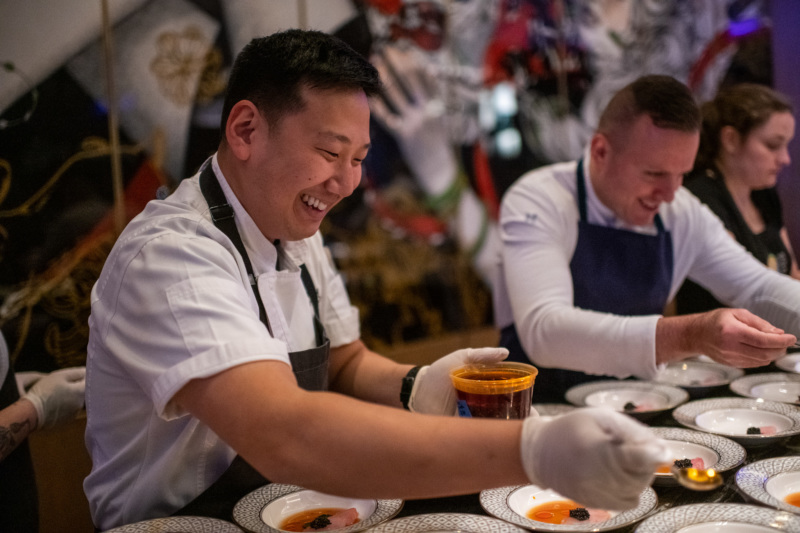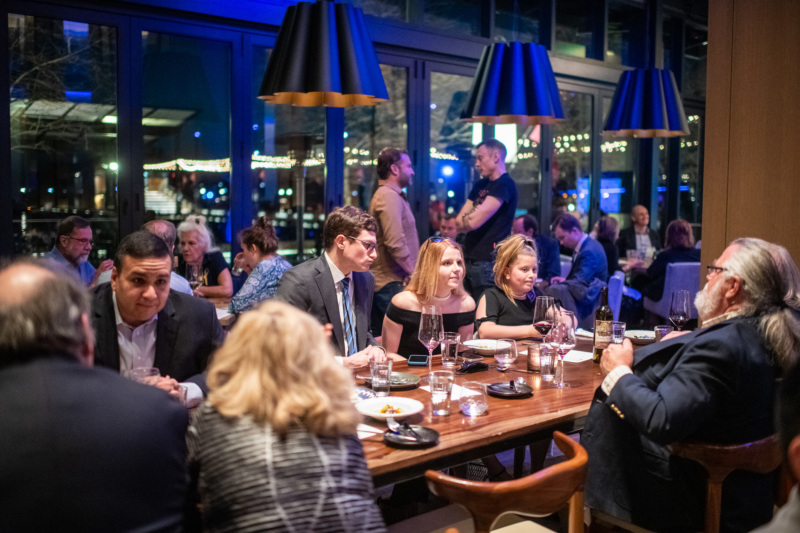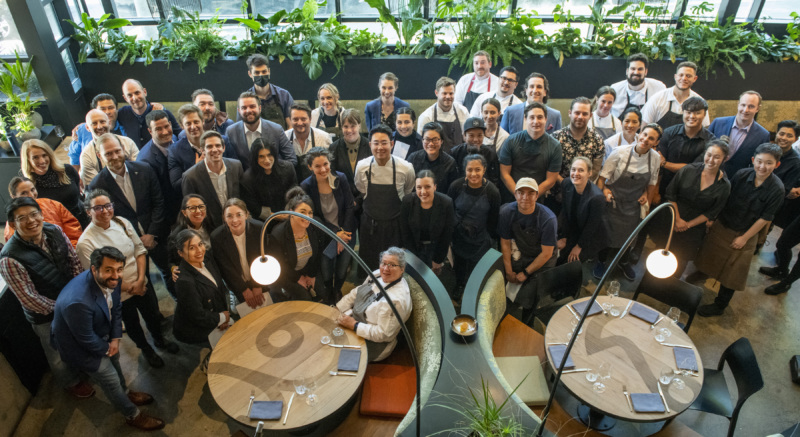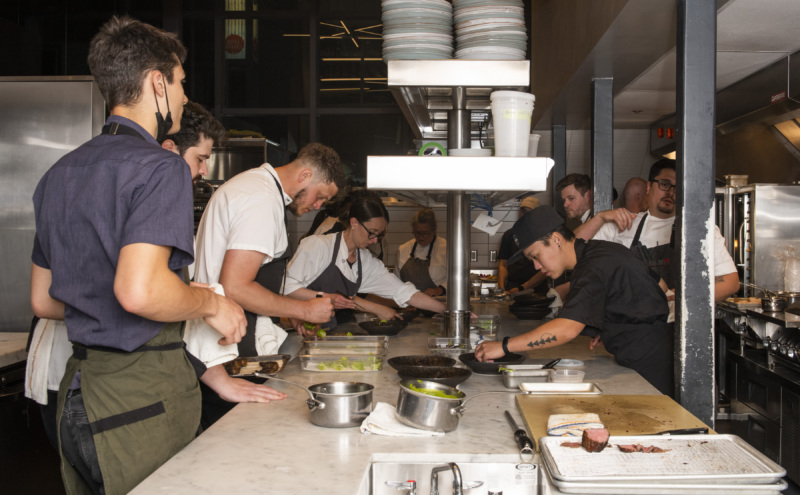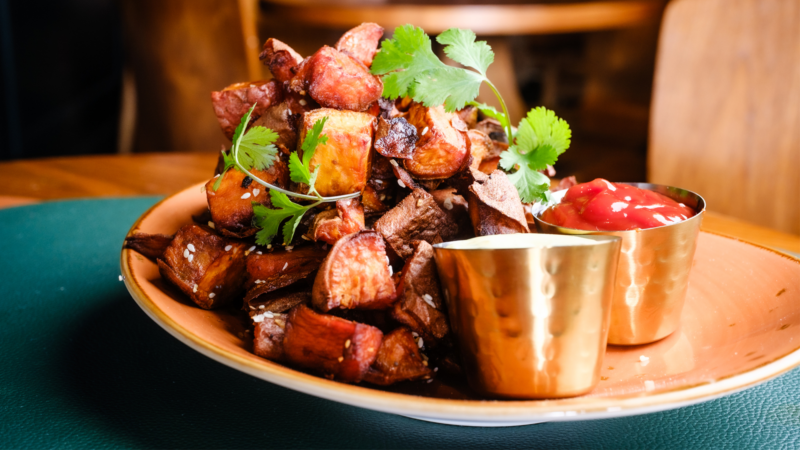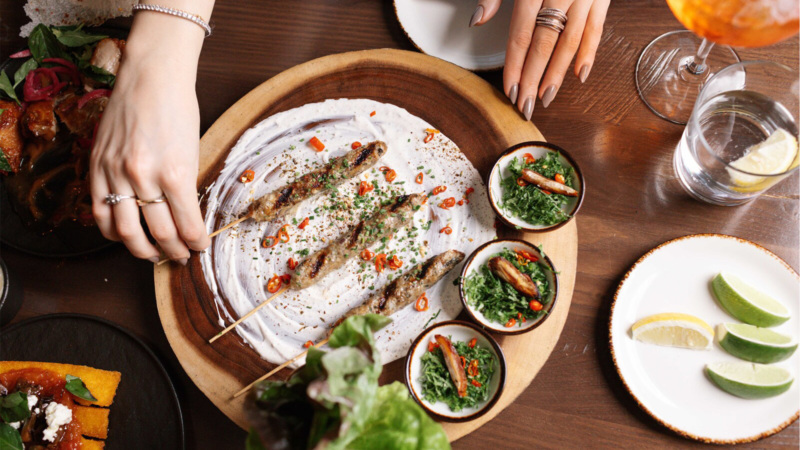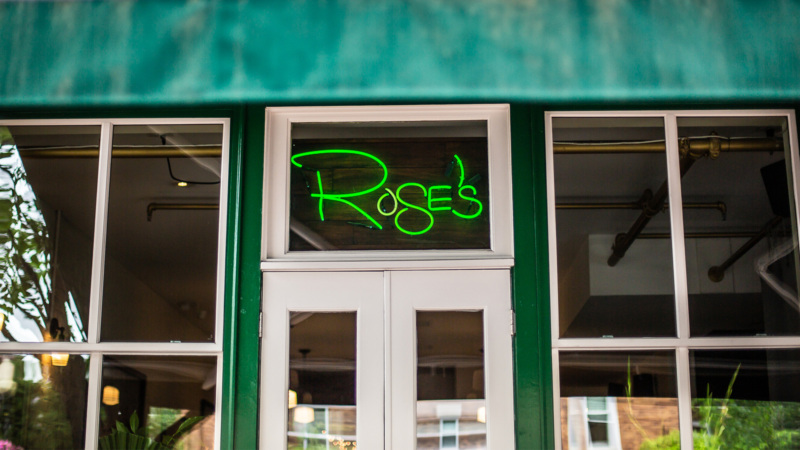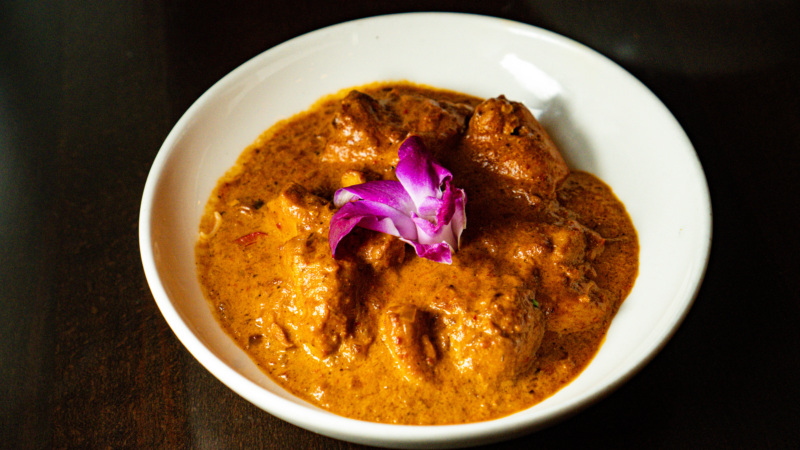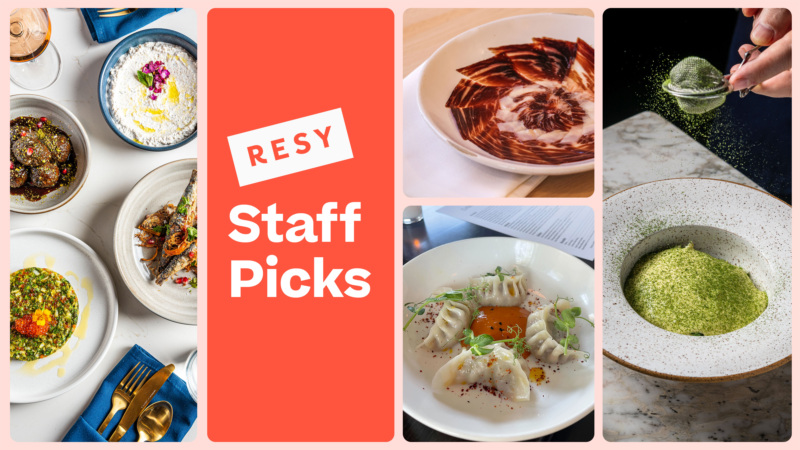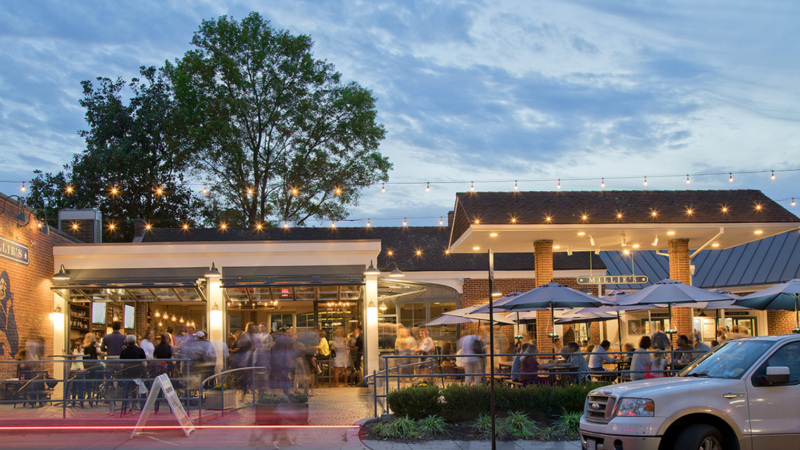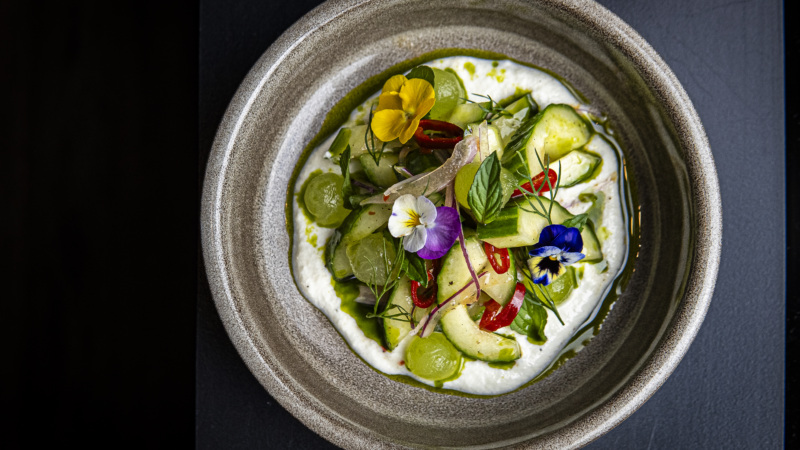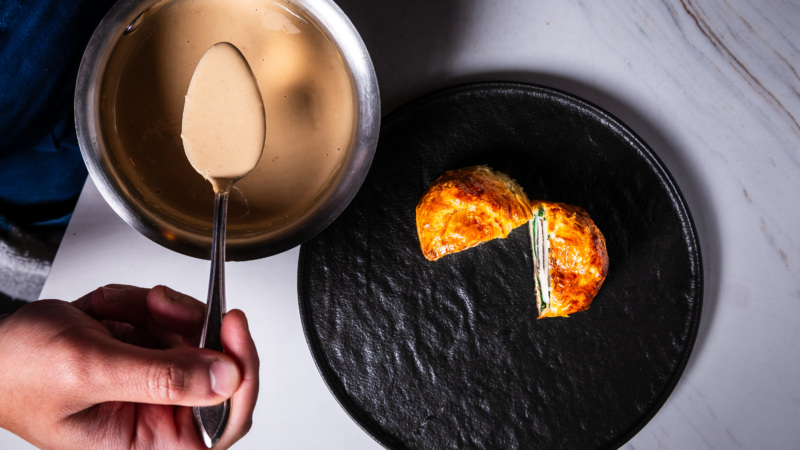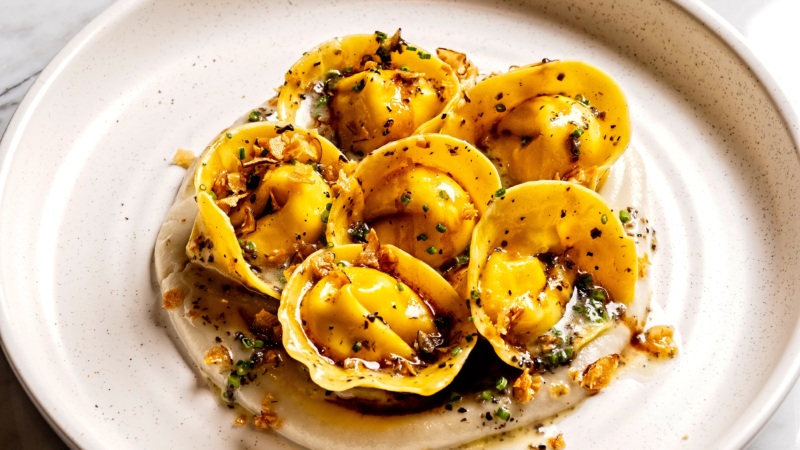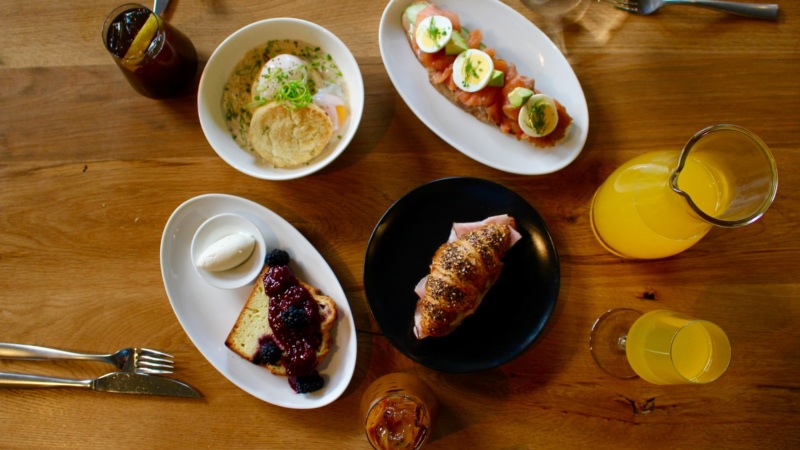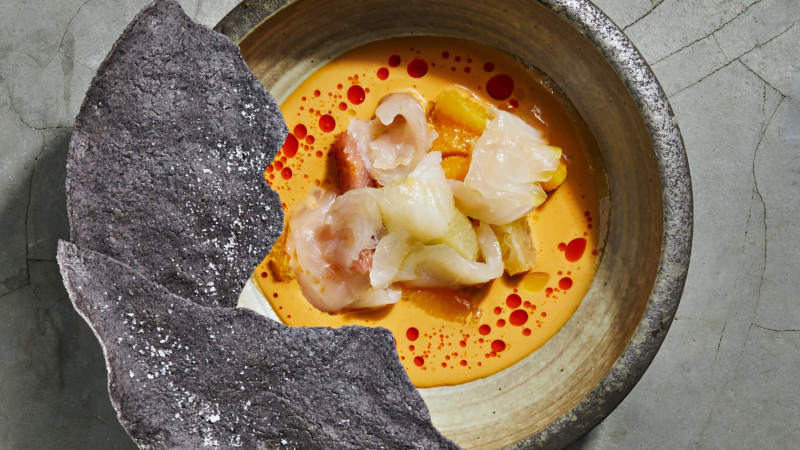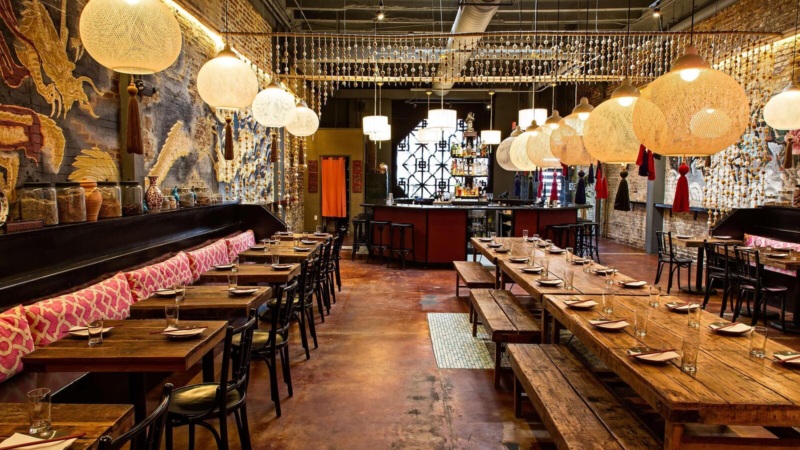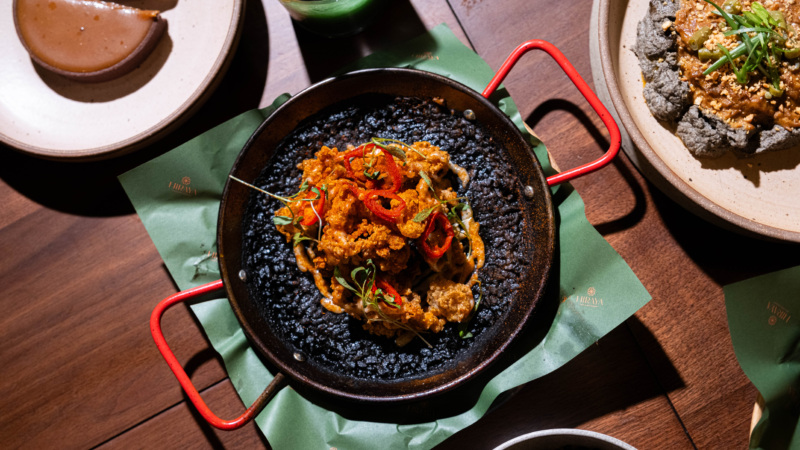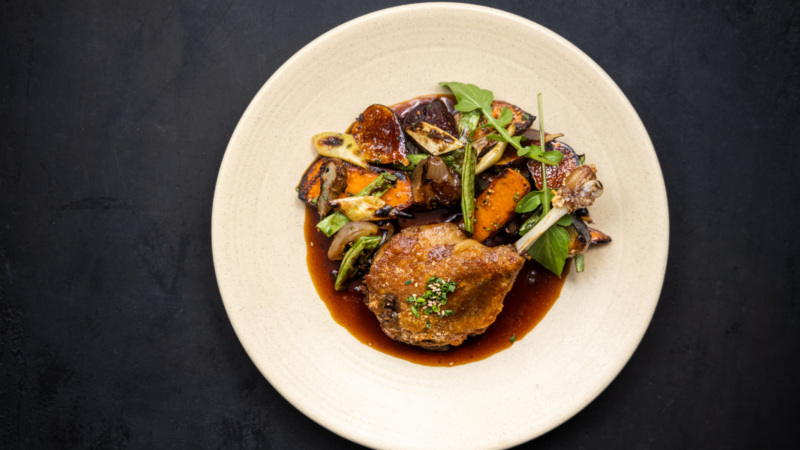
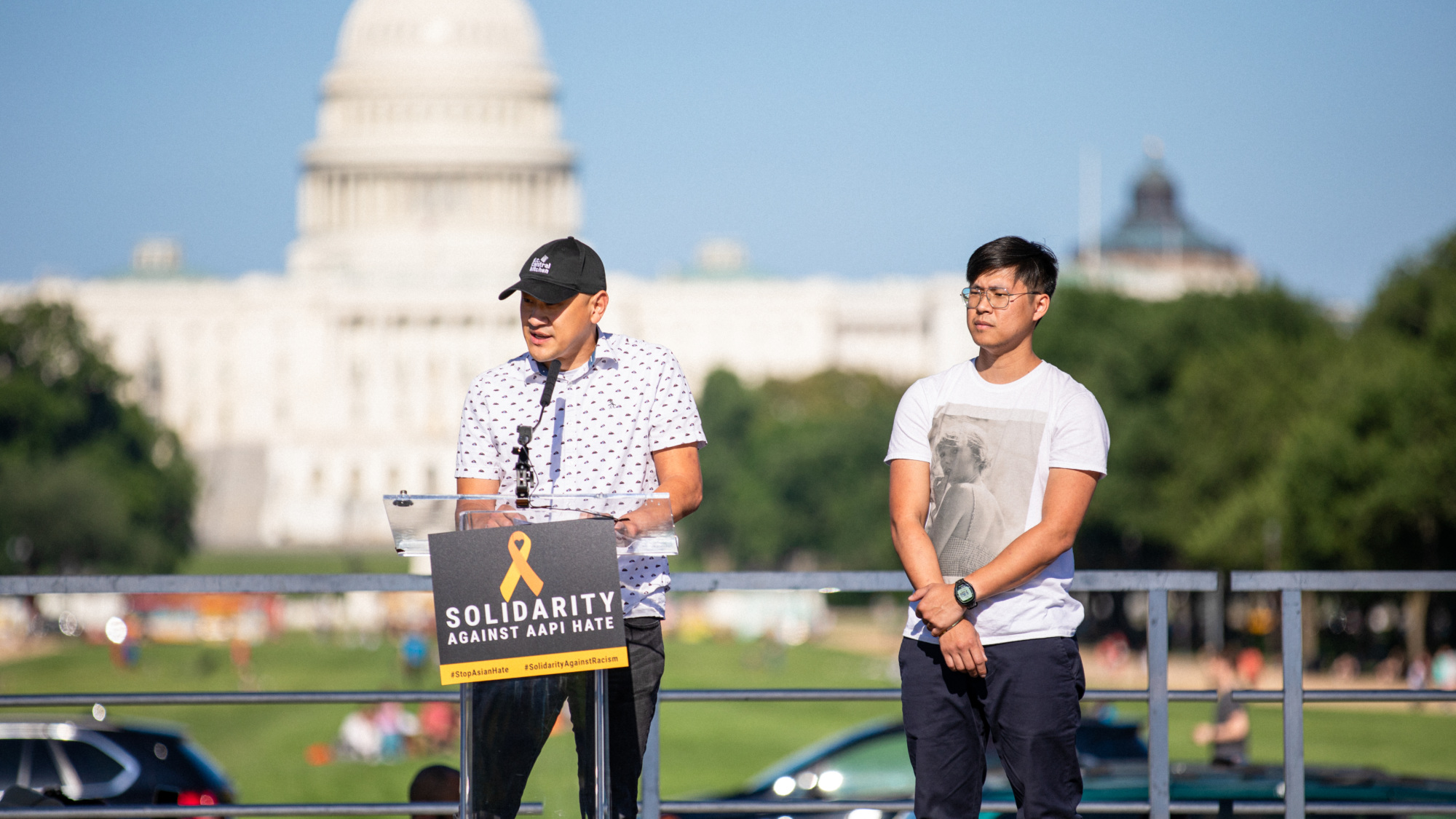
Interviews Washington D.C. National
One Year Later: A Conversation with Chefs Stopping AAPI Hate
In March 2021, Resy chatted with the Washington, D.C.-based team behind Chefs Stopping AAPI Hate, just as they were launching takeout dinners and other events to raise funds and awareness in response to rising anti-Asian hate crimes in America, which spiked 339% in 2021. In total, they’ve raised $500,000 for Asian American, Native Hawaiian, and Pacific Islander (AANHPI) nonprofits and for World Central Kitchen’s efforts in Ukraine over the past year.
Now, more than a year after the nonprofit started, we recently caught up with the founders — D.C.-based chefs Tim Ma (Lucky Danger) and Kevin Tien (Moon Rabbit) — to learn more about their takeaways from the last year and what’s next for their mission-driven work.
This month, they’ve appeared on such programs as “Good Morning America” to talk about their work in celebration of Asian American and Native Hawaiian/Pacific Islander Heritage Month, but their awareness and fundraising efforts, often in collaboration with other communities and causes, continues throughout the year.
The following conversation has been condensed and edited for clarity.
Resy: I’m catching you after your Indie Chef Week dinner last night. How’d it go?
Tim Ma: It was great. It’s a community of chefs through an organization based in Houston, and at its core, it’s this traveling dinner series where, in every city, they do three dinners and bring in about 24 chefs. They come and invade the city, cook all these dinners, have some fun, and make friends; it’s like chef camp because you spend four days with all these other chefs.
Kevin and I had a restaurant less than a mile away from each other, but the first time we met was at one of these events in Richmond, Va. Grover Smith, the founder, has been a very close ally of ours. As we were building up our own organization, he was definitely an ear to listen to all the things that we were going through. He took it a step further, and uses his organization to raise money for our organization. A portion of the proceeds from this event gets donated to Chefs Stopping AAPI Hate. And then a lot of the chefs that we partner with in other cities for our own nonprofit [comes from] this event. It grows the network and creates authentic connections with chefs in other cities. It’s really how we’ve been able to mobilize things so quickly.

- A Conversation with Chefs Stopping AAPI Hate
- What It’s Like to Be an Asian American Restaurant Owner Right Now
- Celebrating the Labour of Asian Women
- In Charleston, a Chef Embraces His Own Chinese American Story
- Detroit Chefs Come Together to Stand Against AAPI Hate
- LA Chefs on Why They’re Teaming Up to Fight AAPI Hate
It’s been more than a year since you launched Chefs Stopping AAPI Hate. How has the year gone, and what has changed in terms of your work?
Kevin Tien: The amount of funds raised is great, but I think our biggest success has been to build a network of chefs who are willing to do events immediately and really come together to support whatever communities are in need. That could be the AAPI community, but most recently we did a dinner for Ukraine in D.C. for World Central Kitchen.
During the pandemic, a lot of restaurants closed, and everyone’s trying to figure out their own path forward — you guys saw it at Resy. But still, while everyone was going through a pandemic and grappling with social justice issues, they’ve been coming together for their community and for others and being allies. That was probably the biggest success for me.
Ma: Two years ago, when the pandemic hit, World Central Kitchen pivoted and started just feeding people who needed to be fed. They mobilized restaurants to make these to-go packages and then not just reimbursed, but paid the restaurants to make these meals, and partnered with Uber to get them delivered to the places that they needed to be. Their reaction time was incredibly fast, and it was a healthy ecosystem where they were feeding people, keeping restaurants in business by paying them, and responding to the pandemic in a great way.
We took a little bit of that system and that’s how we’ve been moving forward. We’ve been able to react to crises that happen around the world, but we do it in a way where we’re paying the chefs to do it. Obviously, we’re doing it for a good cause and then taking that money and then donating it back into the community and nonprofits. Some of the biggest moments that we’ve had in the past year certainly included the World Central Kitchen dinner that happened here in D.C. That one dinner raised a quarter of a million dollars in one night, and that was based on ticket sales, but also some very generous high-net-worth individuals who attended the dinner and donated large sums of money.
In terms of the fundraising takeout series in D.C. and other cities, is that still ongoing?
Ma: No, that really did pause after May 2021. But everybody knows the world has changed since then, too. With the reopening of things, takeout hasn’t been as popular, but that’s why we’ve pivoted to these sit-down dinners that raise a lot more money.
After May 2021, where everything was focused on anti-Asian hate, we took a break — we were pretty tired. But then we understood that we still had a platform to speak on. So as events were arising around the world, we started to pivot and use whatever influence we have to raise money for those things as well. So [it’s] not just [about] the Asian American community, but also the Afghan refugee crisis, and obviously the war in Ukraine. It’s been very rewarding to have other communities stand by us, and now we get to stand by them.
I love this power in numbers approach. How has your organization evolved as a result?
Tien: Last year, we were really kind of just flying by the seat of our pants. Our dinner series that we started, we did that overnight. There were no rules or regulations, so it was just like texting and making phone calls and Zoom calls.
We knew that for us to continue to do impactful work, we needed a lot more structure. So we brought on an executive director, Pamela Yee, to lead us in that direction. As chefs, we don’t really like to follow rules, but Pamela’s really great at making sure that we are doing things like filing paperwork correctly and working with partners to make sure that we all have the same end goal and ethos.
It’s all the non-exciting work, but we’ve been able to make the foundation better than it was in the first year. Last year we were able to donate around $200,000 [to AANHPI nonprofit groups], and then this year, because we have these structures and network in place, we were able to raise $250,000 in just one dinner. That’s a huge difference from what we did last year, and we want to continue building on that foundation.
It’s incredible to see your momentum. What’s in the works next for Chefs Stopping AAPI Hate?
Tien: We recently started work on our emergency storefront fund that’s going to help businesses that that are impacted by violence or hate crimes or vandalism. We’ll be able to get money directly from our organization right into your hands if you’re a small business and you’re vandalized, or your restaurant’s been destroyed by a flood or whatever, and you don’t have the luxury of waiting a month or more for insurance to get you the money. Or let’s say your business got robbed. How are you going to pay for that deductible? It happens to a lot of people. You have your family to feed, you have your staff to take care of. And that’s where we hope to be able to step in and say, “Hey, how can we support you?” The idea is you fill out an application, you tell us your situation, we vet it, and then we say, “OK, we’re able to afford you this grant right now, and this should help for the meantime.”
Ma: We’re still in the early stages of the program, but we did an event in L.A. recently in partnership with HBO Max, where we were curating a night market in celebration of the Los Angeles Asian Pacific Film Festival. We’re using the funds and the donation that they gave us from there to start this program.
What are you doing in the D.C. area in particular?
Tien: This month we’re amplifying and celebrating other AAPI-owned businesses for an event hosted by The Asian American Foundation. Tim and I are helping to curate the food for the evening — a to-go dessert box that features AAPI pastry chefs from D.C. — so it’s about recognizing the different businesses and communities that contribute to our local scene.
It’s been really cool because ever since we started this, we’ve connected to so many other AAPI people that have already been doing this work prior to the pandemic. I think before that, I always knew there were issues, but I always kind of ignored it and would just talk to someone like Tim about it. But knowing that there’s a team dedicated to these issues at the White House, and there are other committees working to protect people in Chinatown here in D.C., we can continue building on those connections.
Tim and I partner with D.C. organizations by doing cooking demos or short panels that talk about our work and what everyone can do moving forward. I think a lot of people just really want to hear stories that they can connect with and know that there’s other people out there that are experiencing the same things. and that we can all do this together. It takes everyone to make change.
Ma: In D.C., the Mayor’s Office of Asian Pacific Islander Affairs is all about promoting Asian Americans and Asian American businesses in the city, which I did not know existed until they came down and gave us $10,000 when we started. It’s really inspiring to align with other organizations that are like us or doing the work around us.
We need to keep amplifying our voices and remind people that this isn’t a trend in the news cycle. It’s happening every day still.— Kevin Tien
Even after this reckoning around race, I find it frustrating that incidents keep happening. The recent Dallas shooting didn’t get as much coverage as I thought it would, and just a few months ago my mom got harassed by a man in a Costco parking lot for being Asian. Do you worry about facing something like that, or worse?
Ma: I haven’t [experienced something like that], but I will say that my mom in particular is very fearful of that. We are definitely very outspoken on this platform, and there’s press that’s centered around us and the work that we’ve done. My mom comes from that generation that thinks [you should] put your head down, don’t speak up, don’t make trouble. And so I, and my sister, and my mom have definitely had some conversations around the fact that she’s afraid that someone’s just going to come after us. But I make it a point, especially with my family, with my three kids, to show that you don’t have to be fearful, so that they have an example of how to speak your mind about who you are without doing that in fear. I think behind the scenes, for sure, there’s that worry that something will always happen, but I think there is a level of responsibility even with us as public figures to not show fear, and to be hopefully setting an example so that everybody else knows that they can speak up, too.
What reception have you gotten in terms of your efforts? Is it all positive, or have you run into anti-Asian backlash?
Tien: There were a few emails to us last year that were just kind of like trolling, but I think there are always trolls out there. But I would say, like 99.9% of the time, everyone’s been super supportive, and we always make sure that we surround ourselves with good energy and good people so we can continue doing good work.
With what happened recently in Dallas, I feel there isn’t as much coverage as there may have been last year, yet it’s similar to what happened in Atlanta. In people’s mind it’s like, oh, this has been happening, and maybe they care a little bit less, which is one of the big things that worries me all the time. We need to keep amplifying our voices and remind people that this isn’t a trend in the news cycle. It’s happening every day still.
Do you feel like anything has changed since you founded the organization?
Tien: The biggest change that I’ve seen is I think everyone’s less afraid to speak up, or be vocal about their communities, especially on social media channels. I think prior to COVID, we would just talk about it amongst our friends in our community. But now everyone feels better about openly talking about it. Cause we’re trying to change the mindset of just keeping our heads down. We have to speak up. We have to organize and mobilize and fight back and do something to really support each other and the community and others.
Ma: Change will take time, right? To unf**k something that’s been f**ked for so long. Sorry; it’s that’s the only way I could really express it. All this stuff was happening before 2021; Kevin and I grew up with it. I think what’s been the most impactful change, to me, is that people are at least starting to recognize that sometimes what they say that could be considered funny — like Asian Americans being the butt of a joke — could be very harmful. Like Donald Trump calling COVID the kung-flu — that in itself is very hurtful. Hopefully now more people recognize that saying stuff like that is really damaging to an entire community. And after recognizing that that’s a problem, it’ll take time, but hopefully there are steps toward some kind of change.
How far do we have to go in terms of representation of Asian Americans, in the culinary world and beyond?
Tien: There are a lot of layers to that. In the media, when deciding what chefs to put on a “10 best” list or whatever, it’s like, oh, we can only have one or two Asian people. I think there are gatekeepers out there. I think until a lot of that gatekeeping stops and you just recognize people as people, and their talents for their talents, then you’ll get to hear a lot more voices.
Ma: I think we’re a long way away from the correct level of representation. I don’t know what that is. I just speak from the chef’s perspective, but you see it in Hollywood, too. You’re starting to see that change, but there’s still so much room to grow. I don’t know how that change happens to be honest, but hopefully to a certain degree, we can use our platform to speak up.
I also think it’s important to have representation in the press. You’re an Asian American writer, and so I think as we get more diversification on that level, you’re not gonna hear the other stories, and that goes for both our industry and others as well. I know that there are many organizations that are starting to change that within, and so when you diversify leadership, you’ll see more recognition for BIPOC chefs and restauranteurs.
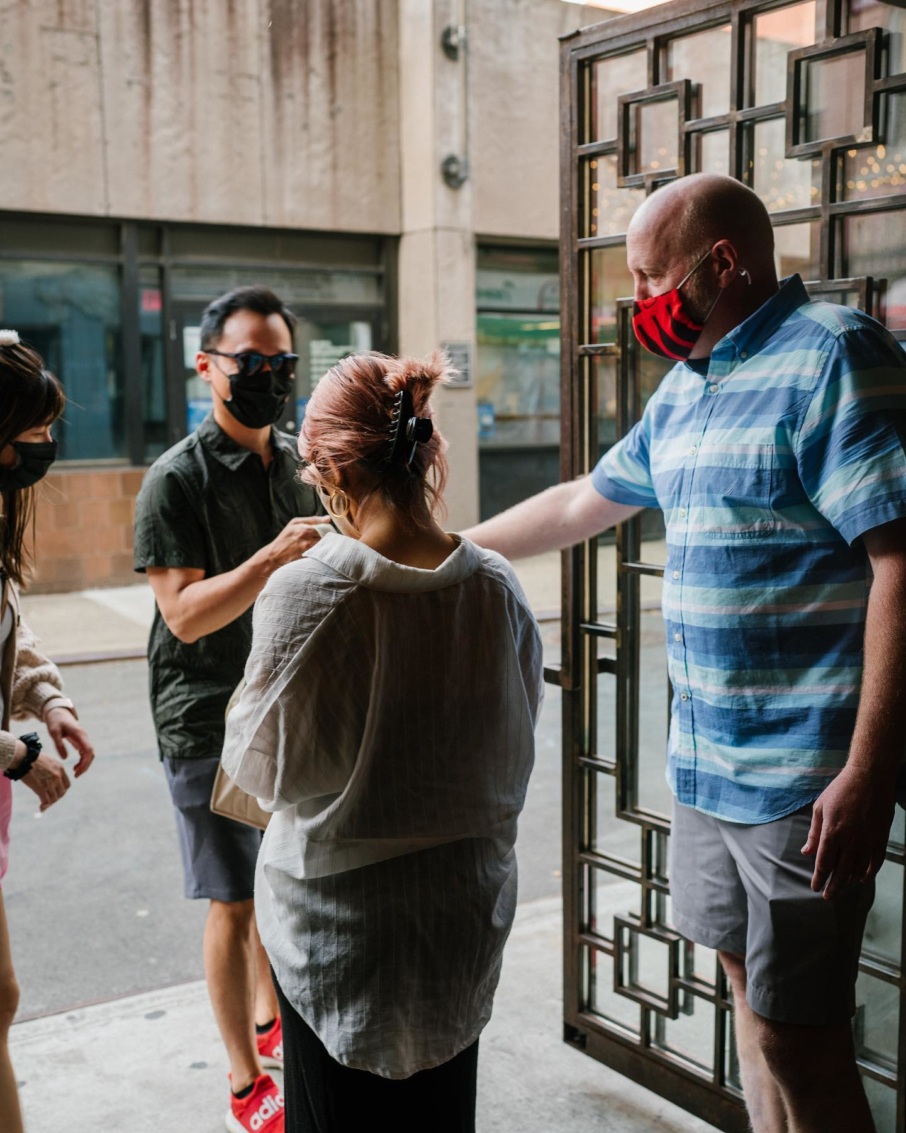
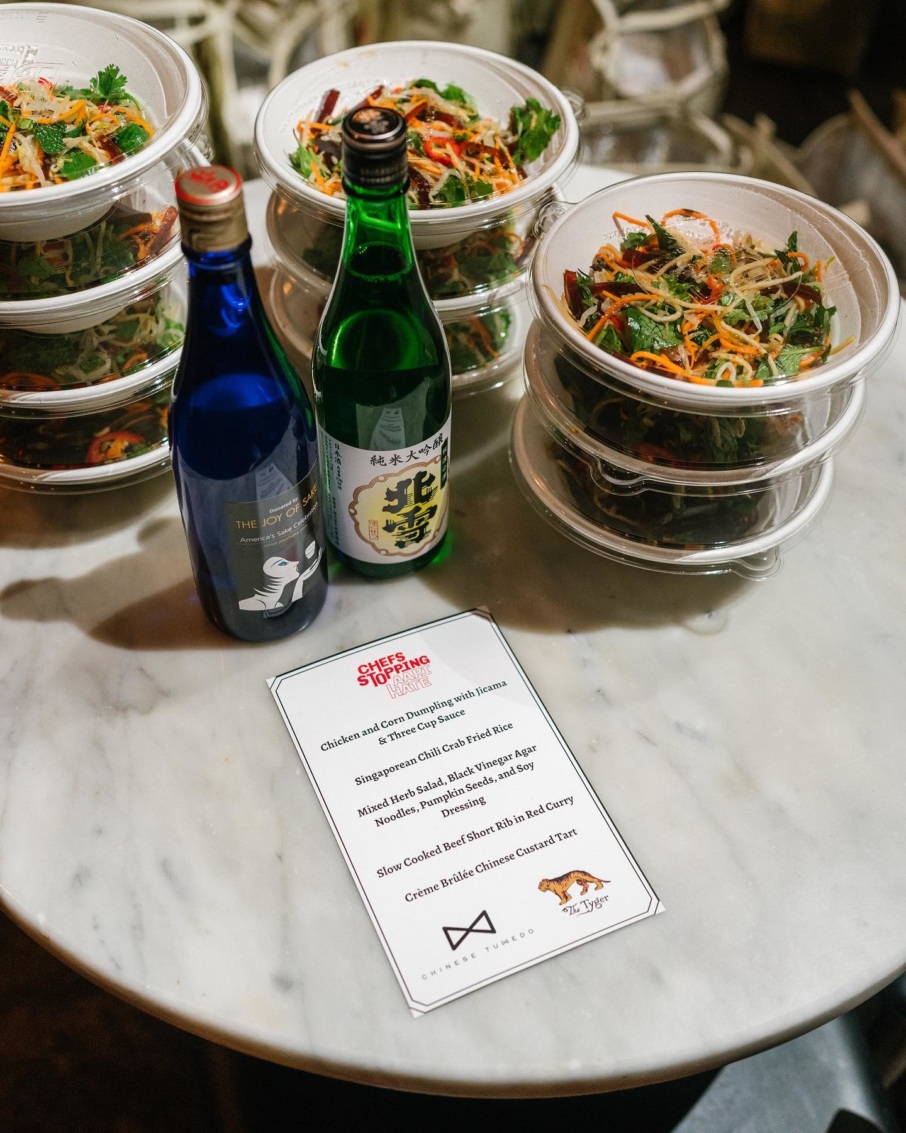
What actions can Asian Americans take moving forward to make a bigger difference? And then how can allies take action as well?
Tien: I would say, just be involved a little bit more in what’s happening in your community. Reach out to your friends and family foremost. It’s a difficult conversation, but you can ask people, “Hey, how can I help? What can I learn about, and what can I do?” And don’t do it just on the month of May. You should be doing this year-round. And then outside of that, support your friends, and then find organizations locally to help and volunteer.
Ma: Definitely support Asian American businesses — not just in the month of May, but all year round. Learn the culture as much as you want but take a deeper dive past just the food. Our whole shtick is that people learn about someone else’s culture through their food first. But sometimes that’s all they know, because they don’t take the time to turn the page and see the next page. And the amount of people, even like last night at the dinner Kevin and I were at, they were like, “How do we volunteer for your organization?” I loved seeing that participation from the community. For them to take the time and come and volunteer for something that they believe in and that we believe in is a beautiful thing.
What else should we know about the next chapter for Chefs Stopping AAPI Hate?
Ma: Just stay tuned. We’re still doing things kind of the same way we were doing them last year, where we’re just like, “OK, let’s do it,” and then a week later we do an event. So do the best to follow what we’re doing, and hopefully find one of our events to support. There’s not a day that Kevin and I don’t talk, and we still can’t keep up with everything that’s going on. Yet we still find a way to get all these things done. We still run restaurants, and Kevin has a very, very busy restaurant. So, he has that youthful energy.
Tien: Ha — my energy is running low, but I’m going to keep going until I’m out of gas.
Learn more about Chefs Stopping AAPI Hate here.
Jennifer Flowers is a writer based in Seattle and New York City. Follow her on Instagram and Twitter. Follow Resy, too.

